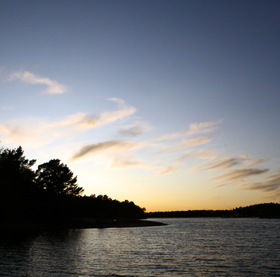Permanent phosphorus binding in Baltic Sea bottom sediments
A powerful measure to reduce eutrophication in the Baltic Sea would be to increase the phosphorus binding capacity of the bottom sediments. This capacity has partly been lost due to oxygen depletion, and the phosphorus concentration in deep water layers has consequently increased over the last decades. This is a central problem for the Baltic proper, but also for the bay suggested for restoration measures within the coastal zone program run by the foundation.
Background
One of the measures within the program Living Coast is to increase sediment phosphorus binding using aluminum treatment. The measure was conducted in the summer of 2012 and 2013 with successful results. Compounds based on aluminum are, however, expensive and exclusive compounds primarily used for drinking water cleaning. For smaller areas, it can be motivated to use these precipitation agents, but alternatives are needed for larger areas.
Potential alternatives to aluminum are byproducts from the lime and concrete industry. These compounds should, after preparation, have the potential to bind phosphorus effectively and on a long term basis in the anoxic environment present in the sediment.
Objectives
The overall goal of the project is to develop a granule that effectively and permanently bind phosphorus in Baltic Sea bottom sediments. It should be cheap to produce and based on byproducts, and without negative side effects for the environment. More specifically, the aim is to find useful byproducts and develop granulates, including laboratory tests. If these experiments are successful, they will be a fundament to continue with large scale tests.

Project status
PROJECT MATERIAL
2014-02-20 - Report
Permanent phosphorus binding in Baltic Sea bottom sediments (in Swedish)
2013-05-29 - Scientific article
Can the Baltic summer flowering be restricted? (In Swedish)
2012-08-24 - Press release
BalticSea2020 is funding two new projects to reduce eutrophication in the coastal bays of the Baltic Sea
CONTACT AT BALTICSEA2020
Emil Rydin
er@balticsea2020.org








